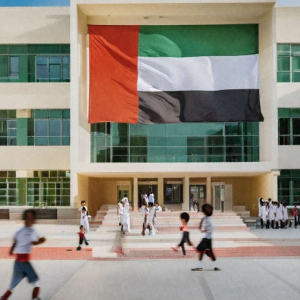Dubai, UAE – In a significant move towards bolstering the city’s emergency healthcare capabilities, the Dubai Health Authority (DHA) has unveiled the ‘Dubai Disaster Medicine Programme.’ This initiative aims to elevate Dubai’s medical response capacity during disasters, emergencies, and crises, aligning with globally recognized standards.
Accredited by esteemed organizations such as the European Centre for Disaster Medicine and the American College of Surgeons, among others, the programme is set to become a cornerstone in Dubai’s healthcare readiness strategy.
Collaborating with the UAE’s Medical Preparedness and Response Programme, Jaheziya, the Dubai Disaster Medicine Programme seeks to standardize disaster medicine training and consolidate reliable information sources, ensuring a unified and efficient approach to emergency healthcare.

“With its state-of-the-art medical facilities, advanced technologies, smart solutions, and highly skilled workforce, Dubai aims to maintain the highest levels of public health security,” stated Awadh Seghayer Al Ketbi, Director-General of DHA, underlining Dubai’s commitment to setting global benchmarks in healthcare excellence.
The programme, designed in response to global health challenges, focuses on training specialized medical and nursing professionals. By the end of the current year, it plans to train 1,000 professionals, with a broader goal of training over 10,000 hospital leaders and healthcare professionals within the next five years.

Training modules encompass six key areas crucial for effective crisis management, including emergency and disaster management, public health incident management, mass casualty incident management, critical case categorization, critical case transportation, and preparedness for chemical, biological, radiological, and nuclear hazards.
Dr Khaled Abdullah Lootah, public health consultant and head of the Disaster Management Office at the DHA, emphasized the programme’s aim to enhance expertise in disaster medicine and crisis management among government and private hospitals in Dubai.
“We have already commenced training 100 medical and hospital administrative staff in Dubai,” said Dr Lootah, highlighting the programme’s immediate impact. He further added that trainees would receive accredited certifications from reputable bodies, enhancing their credentials in disaster medicine and crisis management.
Dr Adel Al Shamry Al Ajami, CEO of Jaheziya, emphasized the programme’s significance in building capacities and readiness for frontline healthcare workers. He noted that Jaheziya, launched through a joint initiative by the Fakhr Al Watan Office and UAE Doctors, aims to develop skills for the frontline defence team in line with the highest international standards.
The Dubai Disaster Medicine Programme represents a holistic approach towards enhancing Dubai’s resilience index and cultivating a culture of crisis and disaster management within the community. By equipping healthcare professionals with specialized training and certifications, the programme ensures that Dubai remains at the forefront of providing premium healthcare services.
As Dubai continues to strive for excellence in healthcare, initiatives like the Dubai Disaster Medicine Programme reinforce the city’s position as a global healthcare hub. With its focus on readiness, standardization, and collaboration, the programme sets a new benchmark for emergency healthcare preparedness, ensuring the safety and well-being of Dubai’s residents and visitors alike.
In conclusion, the launch of the Dubai Disaster Medicine Programme marks a pivotal moment in Dubai’s journey towards achieving healthcare excellence and resilience in the face of emergencies and crises.












